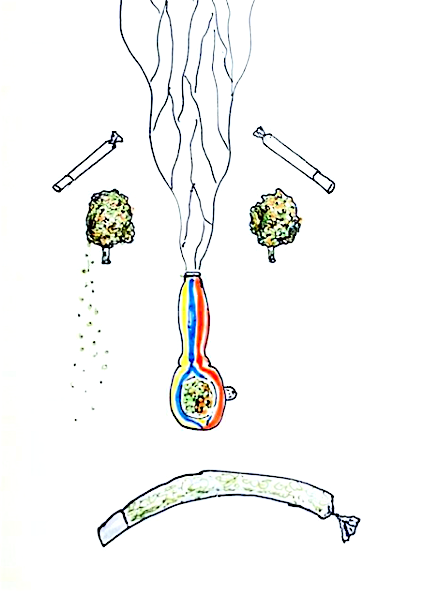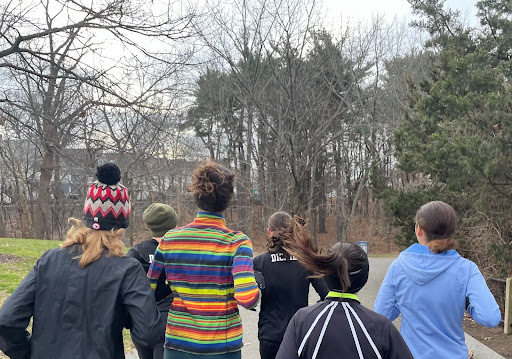Teens in High School Often Rely on Drugs to Cope

May 1, 2019
Of the 36 CRLS students included in a recent survey, 34% of seniors and 30% of juniors surveyed thought teens using drugs wasn’t a major problem.
There are many reasons why a teenager would turn to drugs. Kevin Dua, a psychology teacher at CRLS, says it could be due to curiosity, stress, acceptance or approval in social groups, or to feel more like an adult.
In addition to reasons given by Mr. Dua, other reasons why a teenager could turn to drugs include trying to self-medicate for mental illness. According to the website Addiction Center, “one in eight children are affected by an anxiety disorder, but only twenty percent of affected children receive treatment.” It also says that many teens try drinking to “calm hyperactive brain activity that leads to anxiety disorders.”
In relation to teens who use substances to help with anxiety, there are also teens who use drugs and alcohol to help with depression. While self-medication could benefit people in some cases, in most cases, it could worsen a mental illness-—especially if the drug used is addictive and harmful to one’s health. For example, tobacco and marijuana could worsen depression and anxiety, as said on the website Prevent Drug Use.
Drug and alcohol use could also “create a psychological dependence on the substance,” according to Very Well Mind. People who use drugs may not only create a physical addiction such as a drop in appetite, cravings, trouble sleeping, and physical discomfort, but a mental one as well.
Youth learn the side effects and dangers of drug usage in middle and high school health classes, so why do teenagers still use drugs? Former health teacher Sara Reese says that teenagers are still “forming their ability to weigh consequences for their behavior.” So, while teenagers know the dangers of drug usage, many are in denial that the effects and risks would impact them.
Drug use at a young and vulnerable stage in life may “alter the structure of developing brains,” and any type of drug use could lead to poor memory, trouble learning, and a growth of desire for taking risks, according to Prevent Teen Drugs. “Adolescents are in a phase of identity versus confusion and perhaps risk-taking is a part of this development,” Reese writes. Acknowledging an addiction is the first step to recovering. Mya Goode, a senior at CRLS, says that an indication that a teenager is addicted is if that teen prioritizes drug use over hanging out with friends.
Everyone enjoys staying occupied and Ms. Reese says that healthy habits and hobbies can give teenagers a “natural high.” Finding a hobby could be one step to help rehabilitate an addicted teenager.
The website Street Directory says natural highs “engross the discharge of physical and emotional anxiety whilst being fully aware.” They are more gratifying than artificial highs, which make the user unaware and lose physical and mental functions. Finding hobbies can help to preoccupy addicted teenagers.
19% of CRLS students surveyed said that teachers and parents should talk with their kids to help them. 19% also said that offering a drug course in school could help as well.
Another option for beginning to rehabilitate an addicted teen is joining a program. Joining a teen drug rehab center is a way to help teens get a start to recovery. Long-term recovery takes intense dedication and hard work but is completely worth it. Changing the behavior that initially induced the addiction is essential to a lasting recovery.
Relapses are common during rehabilitation, and they shouldn’t cause shame. Avoidance from others who use drugs could help prevent a relapse, but addicted teens are at risk of getting rejected by their friends since they could be considered less fun sober. It is essential for recovering addicts to be surrounded by positive relationships.
Dr. Kevin Wandler, a chief medical officer at Advanced Recovery Systems, says, “It’s really important to find sober kids that your teenager could hang out with. The number one influence, besides their parents, are their friends.”
This piece also appears in our April 2019 print edition.








